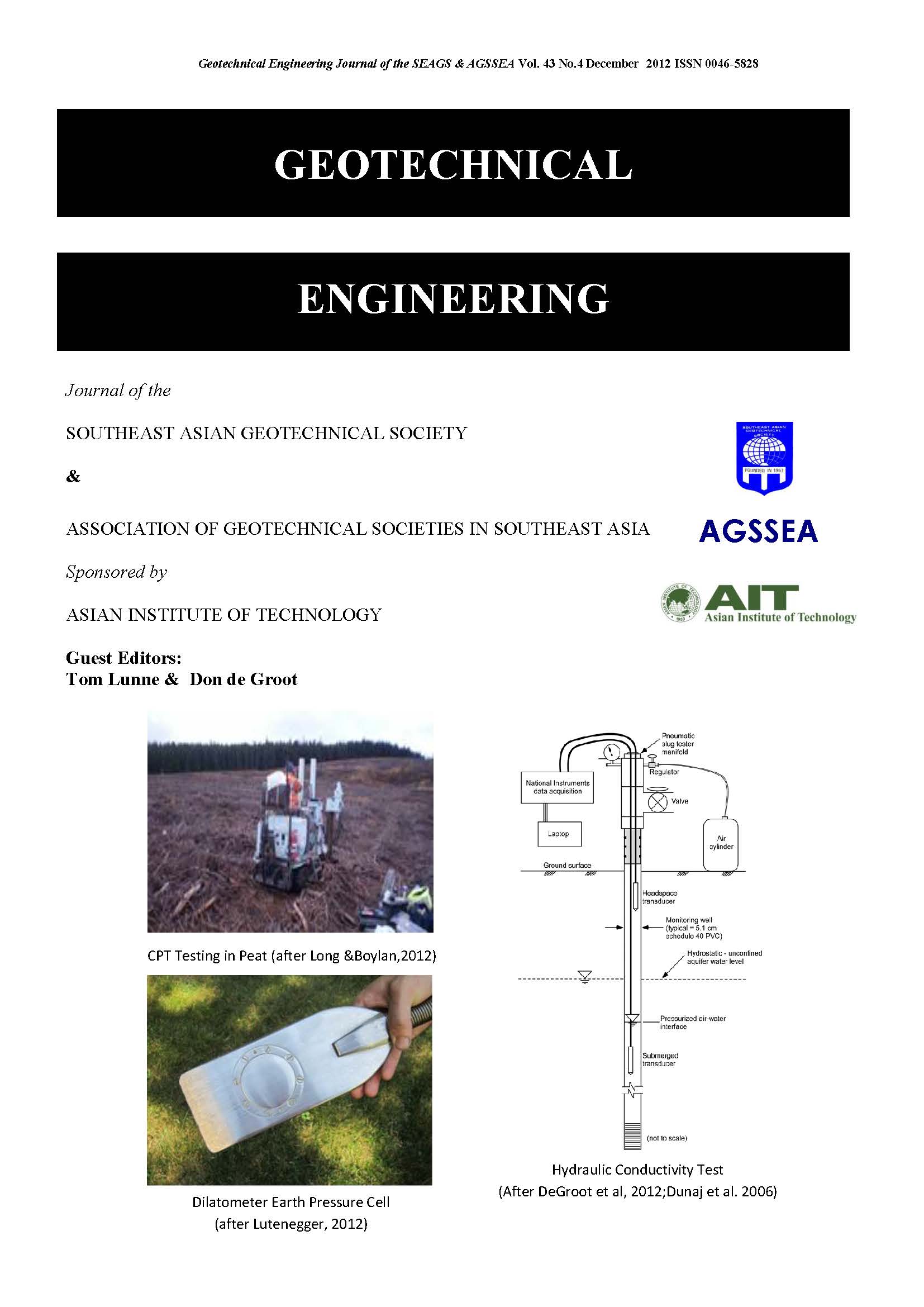Frequent-interval SDMT and continuous SCPTu for detailed shear wave velocity profiling in soils
Main Article Content
Abstract
Two new approaches to downhole shear wave velocity (Vs) measurements are presented, including frequent-interval method by seismic flat dilatometer (FiSDMT) and continuous-interval method by seismic piezocone testing (CiSCPTu). A recently-awarded patent for a roto-autoseis source assists in both methods by generation of fast and repeatable wavelets that are recorded by the probes during advancement. In the case of frequent-interval SDMT, either pseudo-interval or true-interval Vs data are procured at the same depth intervals of 0.2-m as the normal lift-off pressure (p0) and expansion pressure (p1) and therefore is a slowest version of downhole testing. This offers the advantage of accurate and detailed small-strain stiffness measurements (i.e., Gmax) that can be useful in careful settlement calculations, pavement subgrade designs, and paleoliquefaction studies with shallow fine resolution requirements. In the continuous SCPTu, the autoseis generates wavelets as frequently as every 1 or 2 seconds, thus a fastest type of downhole testing. As there are considerable issues with signals that are complex because of refraction effects, variable penetration rates, noise, and vibration, special measures in processing are required in order to extract the Vs profile. The result offers continuous profiles of qt, fs, u2, and Vs with depth from a single sounding.
Article Details

This work is licensed under a Creative Commons Attribution-NonCommercial-NoDerivatives 4.0 International License.
Copyright © 2019 Association of Geotechnical Societies in Southeast Asia (AGSSEA) - Southeast Asian Geotechnical Society (SEAGS).


